Evolutionary Ecology
The department of Evolutionary Ecology gathers complementary skills in behavioural ecology, population dynamics, population biology, community ecology, and methodology (statistics and modelling). The research done in the department aims at studying how animal species evolve in a changing world by understanding the causes of the evolution of traits, adaptations and interactions. For that, we consider different levels of organization from individuals to populations and communities. Because organisms cannot be considered isolated from other biotic factors, we consider pathogens but also competing species within communities.
We study how individuals adapt to their environments that are largely impacted by anthropic pressures, and how life history traits and behaviour evolve in response to these pressures. Although we mainly focus on phenotype, we more and more consider the mechanistic link between the genotype and the phenotype. We develop the theoretical framework of our discipline through a conceptual and modeling approach. In parallel, we test hypotheses that arise from theoretical predictions through experimental, comparative and observational approaches on different biological models (insects, birds, mammals). Experimental approaches are developed in the laboratory (insect model) and in natura (bird, insect and mammal models). Observational and comparative research is mainly concerned with vertebrates. Our approaches are also, and increasingly, interested in the mechanisms of adaptive responses. In addition to the classical approaches of demographic analysis and trait change, methods of ecophysiology, chemical ecology and molecular biology are used.
Our department hosts several long-term studies of wild populations of different species. These long-term studies offer a valuable way to understand how biotic and abiotic factors affect individuals’ life history traits, and the functioning of populations in natura. Five populations of mammalian species are thus monitored for several years (more than 40 years on roe deer, 30 on Alpine marmots, 25 years on cats, 16 years on zebras, and 20 years on impala). Two of our study sites (La Sassière in Vanoise National Park (Alpine marmots) and Hwange National Park) have been certified as “Site d’Etude en Ecologie Globale” (SEEG), and two (ZA “Hwange” and ZA “Antarctic and sub-Antarctic”) were certified as “Zone Atelier” by the CNRS.
The department of Evolutionary ecology is also largely involved in training activities. Lastly, we also have strong socio-economic relationships. Indeed, because we address questions of major societal interest (global warming, public health) we tightly collaborate with socio-economic partners (Office Français de la Biodiversité, Vanoise National Park, Hwange National Park in Zimbabwe, Office National des Forêts, etc.) and participate to general public and media events.
Publications
Display of 2371 to 2400 publications on 2449 in total
Thoracic trident pigmentation in Drosophila melanogaster : latitudinal and altitudinal clines in Indian populations
Genetics Selection Evolution . 29 : 601-610
Journal article
see the publicationReappraisal of the effect of temperature on the growth kinetics of Aeromonas salmonicida
Letters in Applied Microbiology . 25 : 363-366
Journal article
see the publicationVariation in growth form and precocity at birth in eutherian mammals
Proceedings of the Royal Society B: Biological Sciences . 264 ( 1383 ) : 859-868
Journal article
see the publicationDynamics of two feline retroviruses (FIV and FeLV) within one population of cats
Proceedings of the Royal Society B: Biological Sciences . 264 : 785-794
Journal article
see the publicationEvolutionary changes of non linear reaction norms according to thermal adaptation : a comparison of two Drosophila species
Comptes rendus de l’Académie des sciences. Série III, Sciences de la vie . 320 : 833-841
Journal article
see the publicationLatitudinal clines for morphometrical traits in Drosophila kikkawai : a study of natural populations from the Indian subcontinent
Genetical Research . 71 : 31-38
Journal article
see the publicationFunctional data analysis of curve asymmetry with application to the color pattern of Hydropsyche contubernalis head capsule
Biometrics . 53 : 294-305
Journal article
see the publicationADE-4: a multivariate analysis and graphical display software
Statistics and Computing . 7 : 75-83
Journal article
see the publicationThe particular behaviour of Listeria monocytogenes under sub-optimal conditions
International Journal of Food Microbiology . 29 ( 2-3 ) : 201-211
Journal article
see the publicationModélisation à visée prévisionnelle de la cinétique de croissance d`une population de Listeria monocytogenes
incollection . -- : 377-392
Journal article
see the publicationNetMul a World-Wide Web user interface for multivariate analysis sofware
Computational Statistics and Data Analysis . 21 : 369-372
Journal article
see the publicationDifferential growth of Listeria monocytogenes at 4 and 8°C: Consequences for the Shelf Life of Chilled Products
Journal of Food Protection . 59 ( 9 ) : 944-949
Journal article
see the publicationThe particular behaviour of Listeria monocytogenes under sub-optimal conditions
International Journal of Food Microbiology . 29 : 201-211
Journal article
see the publicationApplication of a modified disc diffusion technique to antimicrobial susceptibility testing of Vibrio anguillarum and Aeromonas salmonicida clinical isolates
Veterinary Microbiology . 51 : 137-149
Journal article
see the publicationOrigin of replication of Mycoplasma genitalium
Science . 272 : 745-746
Journal article
see the publicationAsymmetric substitution patterns in the two DNA strands of bacteria
Molecular Biology and Evolution . 13 : 660-665
Journal article
see the publicationLa ponte chez le balanin de la châtaigne /Curculio elephas/ (Gyll.) (Coléoptère : Curculionidae)
Annales de la Société Entomologique de France . 32 : 445-450
Journal article
see the publicationInterference at several temporal scales between two chestnut insects
Oecologia . 108 : 151-158
Journal article
see the publicationCold Shock and Cold Acclimation Proteins in the Psychrotrophic Bacterium Arthrobacter globiformis SI55
Journal of Bacteriology . 178 ( 11 ) : 2999-3007
Journal article
see the publicationDrosophilids from an arid Afrotropical country the Republic of the Niger : faunistics and phenotypic plasticity
Drosophila Information Service . 77 : 115-117
Journal article
see the publicationOn-line tools for sequence retrieval and multivariate statistics in molecular biology
Computer Applications in the Biosciences . 12 : 63-69
Journal article
see the publicationCorrespondence discriminant analysis: a multivariate method for comparing classes of protein and nucleic acid sequences
Computer Applications in the Biosciences . 12 : 519-524
Journal article
see the publicationA simple vectorial representation of DNA sequences for the detection of replication origins in bacteria
Biochimie . 78 : 323-326
Journal article
see the publicationCold shock and cold acclimation proteins in the psychrotrophic bacterium Arthrobacter globiformis SI 55
Journal of Bacteriology . 178 ( 11 ) : 2999-3007
Journal article
see the publicationFrequency-dependent maintenance of left handedness in humans
Proceedings of the Royal Society B: Biological Sciences . 263 : 1627-1633
Journal article
see the publicationSize variation in conodonts in response to the Upper Kellwasser crisis (Upper Devonian of the Montagne Noire France)
C.R. Acad. Sci. . 323 : 435-442
Journal article
see the publicationFourier analysis applied to stephanomys (Rodentia Muridae) molars: nonprogressive evolutionary pattern in a gradual lineage
Paleobiology . 22 : 255-265
Journal article
see the publicationGrowth temperature and adult pigmentation in two Drosophila sibling species : an adaptive convergence of reaction norms in sympatric populations ?
Evolution - International Journal of Organic Evolution . 50 : 2346-2353
Journal article
see the publicationTowards Better Graphics for Multivariate Analysis: the Interactive Factor Map
Computational Statistics and Data Analysis . 11 : 11-21
Journal article
see the publication
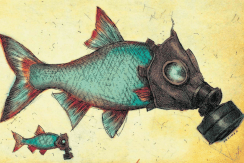
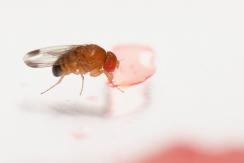
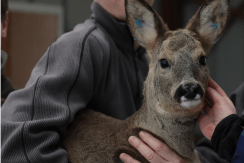
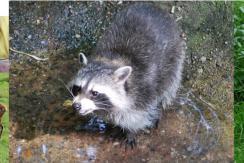
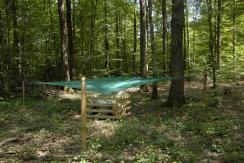
You also, comment on this article